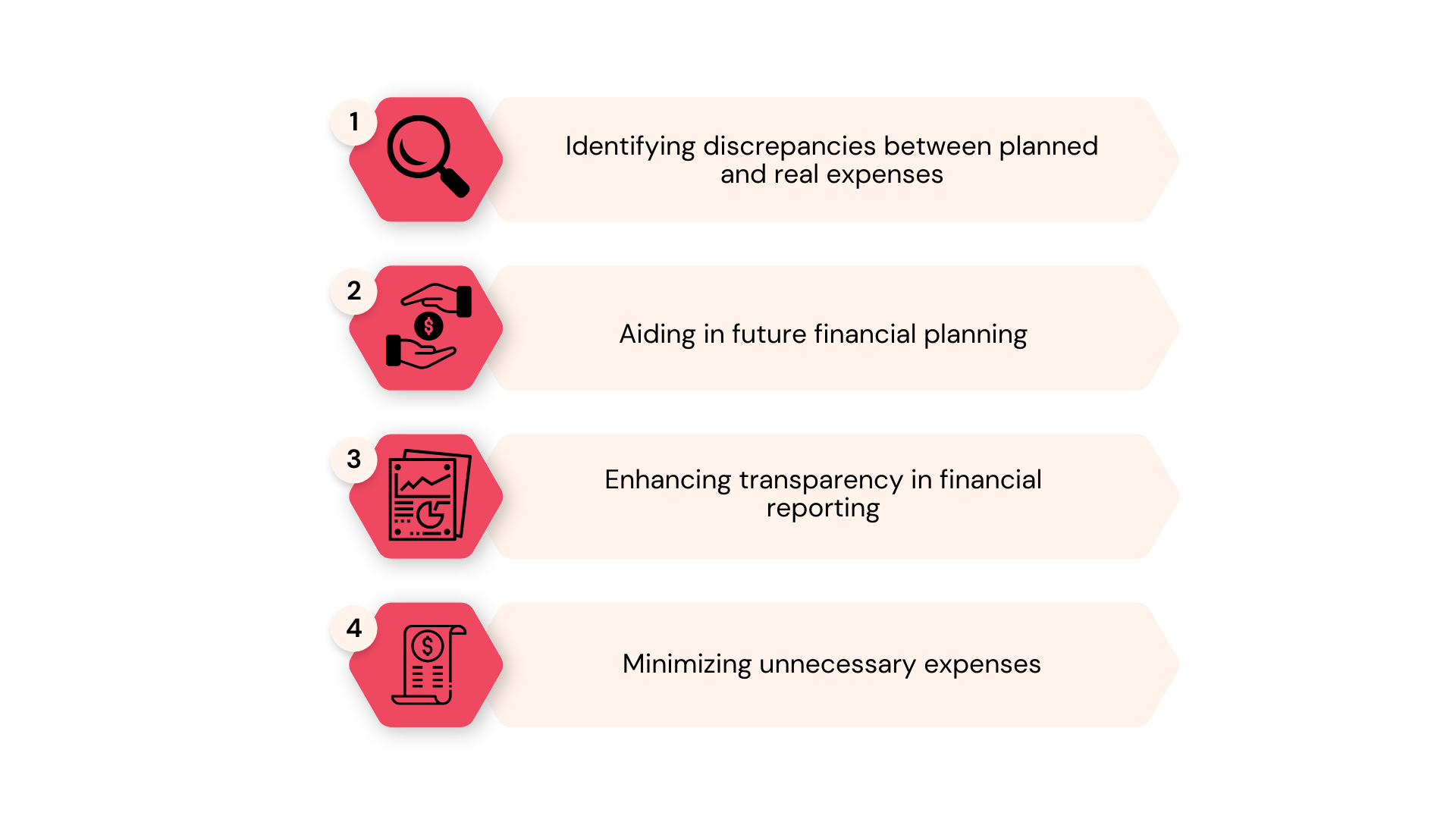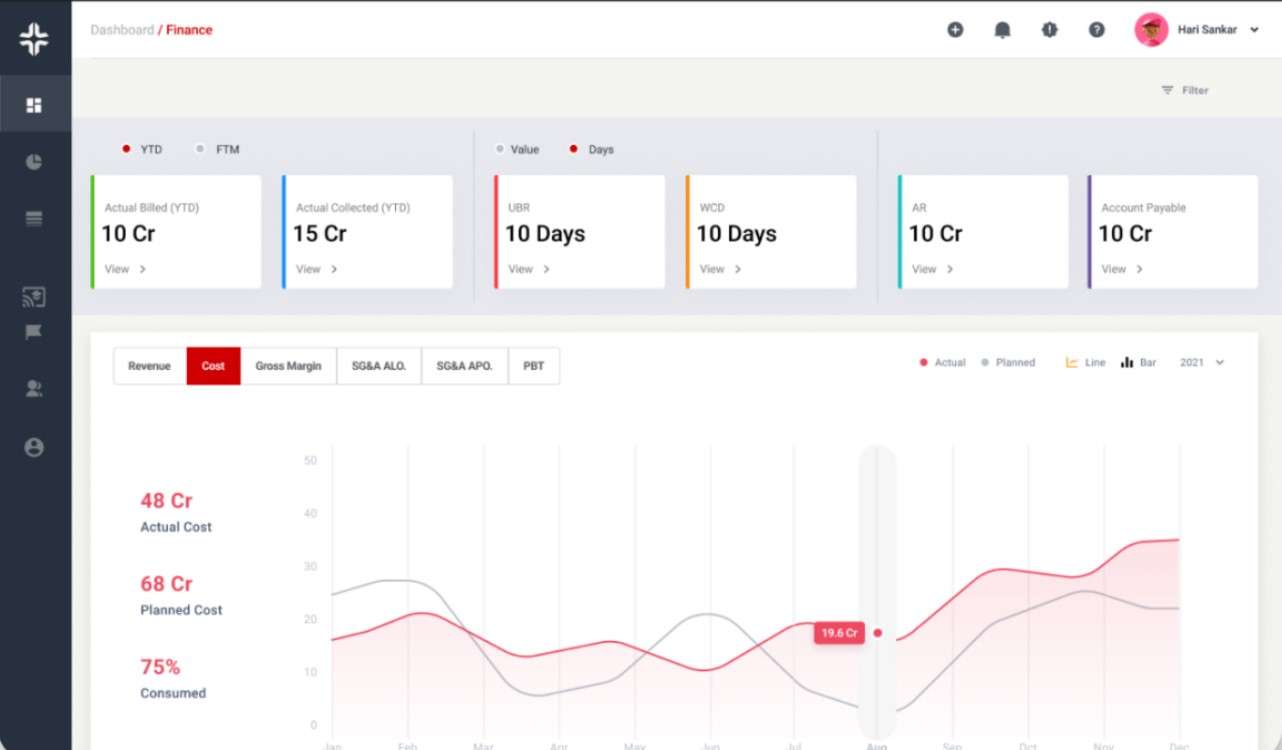Home » PSApedia
Budgeted Cost and Actual Cost
Financial Insights Made Easy. Analyze Budget and Actual Cost for Informed Decision-Making.

What is the Budgeted Cost and Actual Cost?
The financial foundation of every business project lies in its budgeted and actual costs. Budgeted Cost is an estimate of what a business expects to spend on a particular project or operation. On the other hand, Actual Cost refers to the real expenses incurred by the business for that same activity. This can include everything from labor costs to raw materials or other operational expenses.
Budgeted Cost is the estimated money set aside for a project, task, or activity, based on forecasts or planning. It serves as a benchmark for anticipated expenditures. Actual Cost is the true amount of money spent on a project, task, or activity.
The Importance of Understanding Costs in Business
For businesses to thrive, it’s paramount to monitor and control their finances. A clear understanding of both budgeted and actual costs helps in:
- Identifying discrepancies between planned and real expenses.
- Aiding in future financial planning.
- Enhancing transparency in financial reporting.
- Minimizing unnecessary expenses.
For instance, businesses using finance management tools can more easily identify these discrepancies and address them promptly.

The Importance of Understanding Costs in Business
Calculating Budgeted and Actual Costs
Budgeted Cost = Estimated Quantity x Estimated Cost per Unit
Actual Cost = Real Quantity Used x Real Cost per Unit
Let’s consider a simple example: A business estimated to use 100 units of raw material at $5 per unit (Budgeted Cost = $500). By the end of the month, they used only 90 units, but the cost was $5.50 per unit (Actual Cost = $495).
Differences Between Budgeted Cost and Actual Cost
These two costs are crucial in determining the financial health of a project or operation:
- Budgeted Cost gives foresight, allowing businesses to allocate resources effectively.
- Actual Cost, when compared against the budgeted cost, provides insights into financial performance and areas of improvement.
Utilizing tools like project management software can assist businesses in setting realistic budgets and monitoring actual costs more efficiently.
| Aspect | Budgeted Cost | Actual Cost |
|---|---|---|
| Definition | The estimated cost that is planned for in the budgeting process. | The real cost that is incurred during operations. |
| Purpose | To plan for expected expenses and allocate resources accordingly. | To measure the actual expenses and determine the efficiency of operations. |
| Timing | Determined before the actual operations commence. | Known after the operations have taken place. |
| Use in Performance Analysis | Used as a baseline against which actual costs are compared. | Used to determine whether the organization operated within or over budget. |
| Adjustments | Can be adjusted in future planning cycles based on historical data and other factors. | Cannot be adjusted since it represents amounts already spent. |
| Impacts | Helps in setting financial targets and expectations. | Impacts profitability and financial reporting of the organization. |
| Source of Information | Often based on historical data, market research, forecasts, and managerial judgment. | Based on financial statements, receipts, and expenditure records. |
How Businesses Use These Costs to Their Advantage
Knowledge of these costs empowers businesses to:
- Adjust budgets based on actual costs.
- Analyze which areas are consistently over or under budget.
- Implement strategies for cost-saving.
- Make informed decisions on resource allocation using tools like resource management.
To further dive into managing costs, businesses can read about streamlining project financials or the impact of project management on organizational performance.
Ready to Optimize Your Cost Management?
When discussing cost management, tools like KEBS provide holistic solutions to businesses. From timesheet management which helps in tracking labor costs, to deal management for sales, and ticket management for support, KEBS aids in optimizing every business facet. Their holistic approach means integrating all these tools to give a comprehensive financial overview.

KEBS Finance Management
Businesses looking for an all-in-one solution to handle their financial planning and tracking can benefit from KEBS. Its seamless integration of various tools makes managing budgeted vs actual costs a breeze. Contact us today or book a demo to witness the transformative power of KEBS in action.



